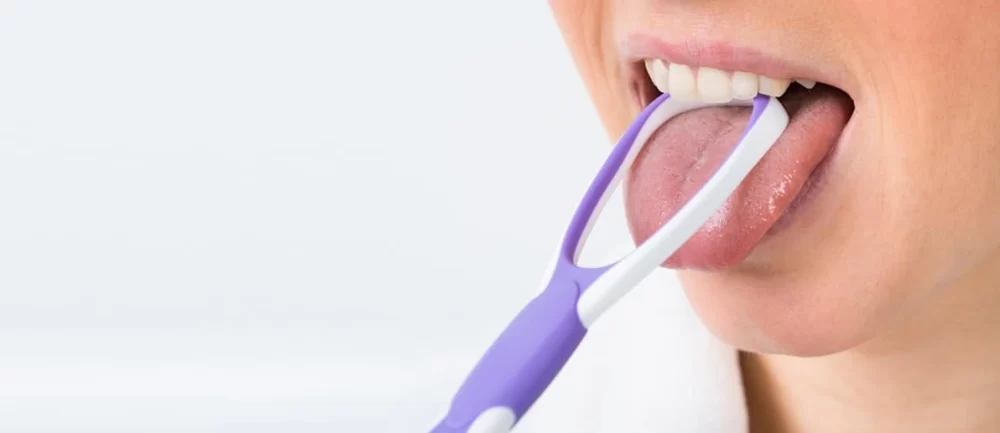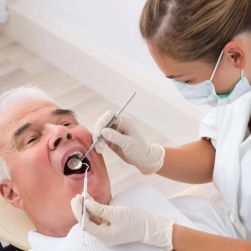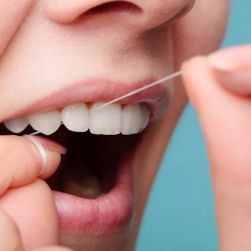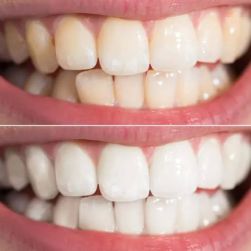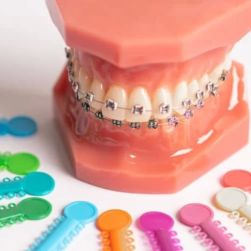The Power of Tongue Scraping: A Simple Habit for Fresh Breath
For years, I struggled with occasional bad breath. I would brush my teeth regularly, floss, and use mouthwash, but there were still times when I felt self-conscious about my breath, especially after meals. One day, a friend mentioned something that changed my oral care routine forever: tongue scraping. It sounded simple enough, but I had never really considered the impact my tongue could have on my breath and overall oral hygiene. So, I decided to give it a try—and the results were incredible. If you're looking for a simple and effective way to improve your breath and oral health, tongue scraping might just be the solution you've been searching for.
1. What Is Tongue Scraping?
Tongue scraping is exactly what it sounds like: a practice of cleaning the surface of your tongue using a specialized tool called a tongue scraper. This tool, which is usually made from stainless steel or plastic, is designed to gently remove bacteria, food particles, and dead cells from the tongue's surface. You might be wondering why the tongue needs special attention since most people are diligent about brushing their teeth. But, as I learned, the tongue plays a significant role in oral hygiene that is often overlooked.
Throughout the day, your tongue accumulates bacteria, mucus, and food debris that can contribute to bad breath, tooth decay, and even gum disease. By scraping the tongue, you remove these harmful substances, improving not only your breath but also your overall oral health. I’ve noticed a drastic difference since I started scraping my tongue daily—it’s made my breath fresher and my mouth feel cleaner.
2. Why Is Tongue Scraping Important for Fresh Breath?
Bad breath, or halitosis, can be caused by several factors, but one of the biggest culprits is the bacteria that accumulate on the tongue. I first realized how much my tongue was contributing to my bad breath when I noticed a white coating developing on the surface of my tongue after eating certain foods. That white coating is often a sign of bacteria buildup, which, if left untreated, can cause foul-smelling breath.
Scraping your tongue helps to eliminate the bacteria and food particles that can linger on its surface. It also removes the coating that forms on the tongue, which can cause your breath to smell less than fresh. I found that after scraping my tongue in the morning, my breath was noticeably fresher throughout the day, and I didn’t need to rely as heavily on mouthwash or mints.
3. The Benefits of Tongue Scraping
Beyond fresh breath, tongue scraping offers a range of benefits that contribute to better oral hygiene and overall health. Here’s what I’ve learned:
- Improved Oral Hygiene: By removing bacteria and debris from the tongue, you’re reducing the overall bacterial load in your mouth, which helps prevent tooth decay and gum disease. The cleaner your mouth is, the less likely you are to develop cavities or experience bleeding gums.
- Enhanced Taste Sensitivity: A clean tongue can improve your sense of taste. After I started scraping my tongue, I found that I could taste food more clearly and enjoy flavors more fully. The buildup on your tongue can dull your taste buds, so scraping it off can help you experience food in a new way.
- Boosted Overall Health: The bacteria on your tongue can sometimes enter your body through your digestive system, which may contribute to inflammation or infection. By keeping your tongue clean, you're not only promoting oral health but also supporting your overall well-being.
- Improved Self-Confidence: Fresh breath is key to feeling confident in social situations. I remember feeling more confident during conversations and when meeting new people after starting the habit of tongue scraping. It’s a simple yet effective way to ensure that your breath is always fresh and pleasant.
4. How to Properly Scrape Your Tongue
Using a tongue scraper is easy, and it only takes a minute or two each day. Here’s how I incorporate it into my morning routine:
- Choose the Right Tool: First, you’ll need a tongue scraper. You can find them at most drugstores or online. They come in various materials, but I personally prefer a stainless steel scraper because it’s durable and easy to clean.
- Position the Scraper: Gently stick out your tongue and hold the scraper at the back of your tongue. Be careful not to press too hard, as your tongue is a sensitive area.
- Scrape the Tongue: Slowly pull the scraper forward toward the tip of your tongue. You should feel it gently remove the coating and debris as you move the scraper along the surface. I usually repeat this process two or three times to make sure I’ve cleaned the entire surface.
- Clean the Scraper: After each use, rinse your scraper thoroughly under warm water to remove any buildup. I keep my scraper in a clean, dry place to ensure it stays hygienic for daily use.
It’s best to scrape your tongue in the morning, before you eat or drink, to remove the bacteria that have accumulated overnight. I’ve found that this morning ritual not only refreshes my breath but also sets the tone for a productive day.
5. Common Mistakes to Avoid When Scraping Your Tongue
While tongue scraping is simple, there are a few common mistakes to watch out for. These are things I learned the hard way:
- Scraping Too Hard: Your tongue is delicate, so it’s important not to apply too much pressure when scraping. If you scrape too aggressively, you might cause irritation or discomfort. A light touch is all you need for effective cleaning.
- Forgetting to Clean Your Scraper: Just like your toothbrush, your tongue scraper needs to be cleaned regularly. If you don’t rinse it thoroughly after each use, you might transfer bacteria back onto your tongue the next time you scrape it.
- Neglecting Other Oral Hygiene Practices: Tongue scraping is an important part of oral care, but it should be combined with regular brushing, flossing, and dental check-ups. I found that incorporating tongue scraping into my routine, alongside brushing and flossing, gave me the best results for fresh breath and healthy teeth.
6. When to Seek Help for Bad Breath
Although tongue scraping is an effective way to combat bad breath, persistent halitosis may be a sign of an underlying issue. If you notice that your breath continues to be unpleasant despite regular tongue scraping, brushing, and flossing, it might be time to consult with a dentist. Conditions such as gum disease, dry mouth, or certain medical issues can contribute to chronic bad breath, and your dentist can help identify the cause.
In my case, when I first started scraping my tongue, I noticed an immediate improvement in my breath. But I also realized that bad breath can sometimes be a sign of other health issues. If you ever feel concerned, don’t hesitate to reach out to a dental professional to get to the root of the problem.
Tongue scraping is a simple yet powerful way to improve your oral hygiene, freshen your breath, and boost your overall health. By adding it to your daily routine, you can enjoy a cleaner, healthier mouth and more confidence in your interactions with others. And if you’re looking for the best tongue scraper, or other dental tips, check out our website for the latest recommendations!

